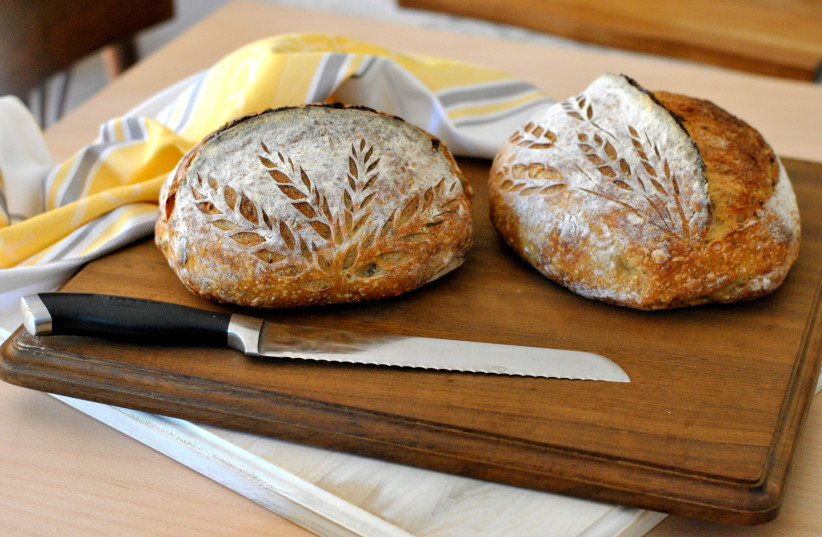As the world celebrates the start of a New Year and we approach one of our own, the New Year of the Trees (Tu Bishvat), it is fitting to reflect on the concept of this yearly ritual, regardless of your denomination.
A New Year celebration encompasses two parts, the completion of a cycle and the beginning of a new one. Intertwined are the security and sense of achievement we feel from things past, coupled with a sense of hope and anticipation for all that is new, all that awaits us around the bend. The confidence we have acquired from previous endeavors strengthens us to face the future.
The truth is we are creatures of habit and reality, as we perceive it as a conglomeration of past experiences. Just as we went to sleep the night before, we wake up the following morning, there is no reason we shouldn’t. The world chugs on as it always has... until it doesn’t! Every now and again we have blips on our radar that shake us out of our reverie and cast our perceptions into doubt. Blips like a global pandemic that cause us to reexamine our tenuous existence on this fragile planet, our relationships and our responsibilities to one another. Inevitably it is a potpourri of stories to warm the heart, mixed with tales that are sobering to the core.
This is something a baker can relate to because it is the essence of baking bread. Every time we bake bread we draw on previous knowledge and perceptions, but every now and again there are blips: the bread doesn’t rise as it did last week, it flops in the oven when we bake it, and so on. Even accomplished bakers experience this, because at the end of the day we are dealing with something that is alive and doesn’t always behave the way we expect it to. To some, this uncertainty and inconsistency can be daunting. To others it is what baking is all about, the discovery of something new or unexpected. It is the application of past knowledge with a healthy dose of faith that things are going to turn out OK and when they don’t, it prompts introspection.
Just as with life, baking bread can be a reminder that you are only partially in control – however much you want to feel otherwise. It is relinquishing the expectation of control that creates space and opportunity for a Beethoven sonata, a Van Gogh masterpiece, the Theory of Relativity, or a stupendous loaf of bread. It is the difference between bread of the factory baked variety and bread baked in your own kitchen. The factory baked bread is made by machine, the one in your kitchen by fallible human beings. Yes, you can depend on the factory made bread – it is always exactly the same, they have engineered it to eliminate the element of chance - but how boring would life be with only factory made bread?

Right now many people would settle for boring, perhaps even long for it, but instead of settling for mediocrity, why not yearn for surprising? Why long to go back to a pre-COVID way of life that was lacking in so many respects, rather than have faith and hope for a better tomorrow?
We stand on the threshold of a new cycle and new possibilities. In Israel, we eagerly await the first blossoming of almond trees with promise for a better future, a rebirth. We simply need to relinquish some control and create space for possibility, as in life as in the kitchen.
Happy New Year and happy, healthy baking!
<br>Sundried Tomato Bread
Poolish:
- ½ cup flour
- 3 Tbsp. water
- 1 tiny pinch instant dried yeast (a few granules)
Mix, cover bowl and leave to rise overnight for 12 hours.
Tomato mixture:
- 100g. sundried tomatoes (drain if from bottle with liquid) chopped
- ½ tsp. dried thyme
- 1 Ttbsp. flax seeds (optional)
Main:
- 2 cups flour
- 1 cup water (lukewarm)
- 1 tsp. instant dried yeast
- 2 tsp. salt
Add the main ingredients to the poolish mixture. Mix and knead for 12 minutes by hand (7 minutes in a mixer on medium speed). Incorporate the tomato mixture until thoroughly mixed and leave to rise for 30 minutes. Punch down the dough and shape it into a country style loaf (round, oval, and so on) on a baking tray. Leave it to rise again for an hour. Bake in an oven preheated to 230 °C for 30-35 minutes, until crust begins to brown.
The writer, a master baker originally from Johannesburg, South Africa, currently lives in Karnei Shomron with his wife Sheryl and their four children. He is CEO of the Saidel Jewish Baking Center (www.jewishbakingcenter.com), that specializes in baking and teaching how to bake healthy, traditional Jewish bread. He also manages the Showbread Institute (www.showbreadinstitute.org), which researches the biblical Showbread.
